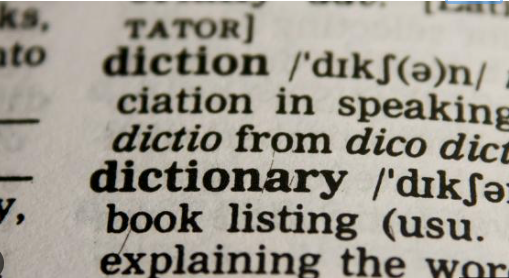Written By: Arabella Kats & Aaron Cuellar, Staff Writers
ETYMOLOGY: Survey reveals which words in the English language students and staff hate most; computational linguist and English teacher reveal why.
Words are powerful. They are vehicles for thought, and have the ability to evoke strong emotions within readers and listeners, often allowing for deeper connections to be made with the speaker or characters. Why do words have the ability to affect people so much? What about a word can make somebody smile or cry or recoil in disgust? How do certain words provoke annoyance or frustration or discomfort in people, and is there possibly a way to predict how someone will react to a word? These questions are many faceted, requiring a somewhat nuanced approach. After surveying the student population at Poly for almost a week on the most uncomfortable words in the English language, it was decided that getting answers to these questions would require the combined perspectives of an English teacher and a computational linguist.
Context is the main variable regarding how people perceive a word, as mentioned by both Poly English teacher David Cordes, and Dr. Curt Burgess, Professor Emeritus from the Department of Psychology at the University of California Riverside (UCR). Depending on past experiences, a word can evoke a different feeling for every person.
In response to the survey question “what is the most uncomfortable word in the English language”, Dr. Burgess explained that he had a deep rooted distaste for the word “island” due to an incident where “[his] whole class started laughing” when he pronounced it wrong in the third grade. Stories such as these are common, and shed light on how people can develop negative or positive associations with words, and feelings of discomfort solely based on how they encountered them in the past.
On the other hand, unfamiliar words have the potential to cause people discomfort as well. “Another thing that’s implicit in words that make people uncomfortable… [is that] they tend to be ambiguous,” Dr. Burgess explained, which is especially true in situations involving wordplay, like comedy, where a joke can rely on incongruity or a double-meaning. Many children or people learning a second language have been documented to have minor instances of xenoglossophobia, a fear of foreign language or misusing a word in a language they already know. In some cases, xenoglossophobia can develop beyond a mild anxiety into something much more serious, occasionally being known to cause panic attacks.
Similarly, Cordes reported that “bequeath” is a word he harbors no fondness for, not only “because the [sound of the] ‘b’ and the ‘q’,” but also due to its archaic origins, the meaning often being lost. “[he remembers] reading… the word itself and being… just kind of irritated. [He] feels like there are other ways to say… ‘I bequeath you’,” which are far superior. Ambiguity in language or a prose well past its expiration date frequently leads to misuse and misunderstanding, which may lead to uncomfortable situations and associations.
All that being said, strange words or strange uses of words are not unilaterally negative. Authors often use language that is typically considered somewhat unconventional or even uncomfortable, to help invest a reader in a character, set of characters, or situation. Cordes happened to be studying this exact topic, and was fascinated by how “writers and authors will more than likely show what is happening to a character than telling about a character… ‘Peter was afraid and hesitant’” would be the most direct way of expressing the given sentiment, “however authors would say something that creates `an emotional connection… [like] ‘Peter’s stomach lurched’…” is an example of how a writer might change this sentence. “Lurched” is a descriptive word which conveys the emotions associated with a situation far more effectively than just stating them, because while many people might not remember or even know how it feels to be cripplingly afraid of something, a “stomach lurch” is a universal experience that will instantly conjure up feelings of anxiety. This also allows some room for the readers’ interpretation, instead of limiting them to the exact thoughts of the author. In cases like this, less common, but more descriptive words can be very useful, especially when trying to create a sympathetic character.
Language is extremely complicated, and there are many correct answers to the questions above. Understanding its many intricacies is nearly impossible, as the sentiments conveyed by individual words are highly dependent on a legion of factors that vary from person to person, and are far beyond what can be easily gleaned from a survey or an interview. That being said, when wielded by a practiced hand and forged with a concrete purpose, language can be an incredibly powerful tool. However, for the sake of the Poly community, please consider refraining from using the word “moist.”
Top Three Most Hated Words According Poly Students and Staff:
- Moist
- Mushy
- Gushy

